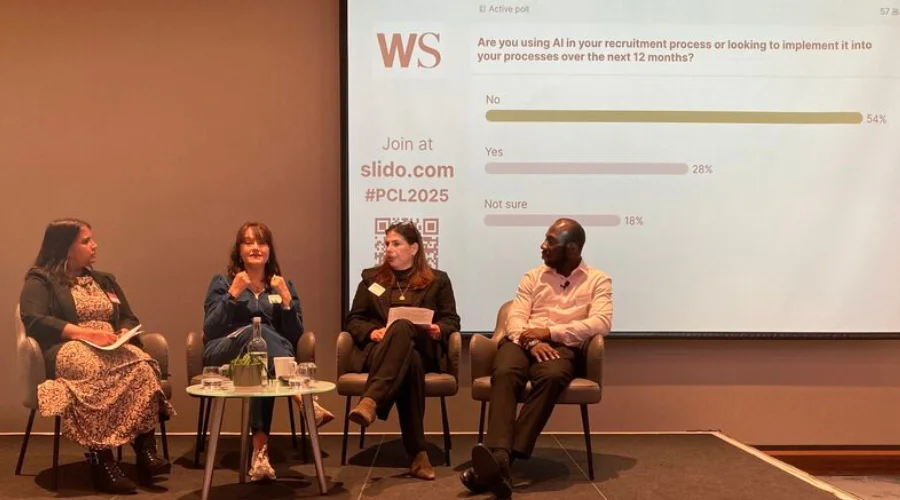
Quick CV Dropoff
Want to hear about the latest non-profit and public sector opportunities as soon as they become available? Upload your CV below and a member of our team will be in touch.

The Role of flexible working patterns and role design in the charity sector
The charity sector faces unique challenges in attracting and retaining talent, particularly as the landscape of work continues to evolve, demand for services are at an all-time high and resources remain limited with increased pressures.
Offering flexibility and attractive benefits has become more crucial, but that alone is not enough. A flexible role needs to be designed in a way that will enable that pattern to be sustainable longer term and result in higher productivity.
Drawing on the findings from our latest TPP’s Non-Profit Salary, Rewards & Retention Survey report, as well as research by Working Families, charities must embrace flexible working options to attract and retain the best people, whilst also carefully consider how roles are structured to meet both organisational and employee needs.
What are the key considerations?
1 – Flexibility is key
The shift towards flexible working patterns has become a key strategy for many charities. As reported by TPP in 2024, 43% of employees in the sector are working flexibly with set core hours, while 15% have no set core hours. With 84% of organisations offering hybrid working and 34% allowing fully remote options, flexibility is a major factor in attracting talent. However, offering flexibility alone isn’t enough – role design plays an essential role in ensuring these arrangements work for everyone.
2 – Role design and realistic expectations
Working Families highlights the importance of job design when offering flexible work, such as the four-day week. However, they go on to say that while the four-day week has gained national attention, it should be viewed as just one of many options, not a one-size-fits-all solution.
TPP’s survey found only a small number of respondents reported working a 4-day working week on full pay, so it remains to be seen whether this gains popularity over the coming months or years. What is critical in any flexible working pattern, whether that is part time, job-share, flexible hours etc, is that the duties, responsibilities and expectations in terms of outcomes, are realistic and achievable within that pattern. Charities must ensure jobs are designed in a way that will empower employees and give them autonomy to be both productive and fulfilled in their roles.
3 – Flexibility for all
There is a growing need to offer flexible working to employees in all types of roles. TPP’s findings indicated that professionals working in HR and fundraising for example, report less flexibility than other functions across the organisation.
Working Families’ research shows that those on lower incomes are twice as likely to have flexible working requests turned down, and nearly half (46%) of working parents hold roles where remote working is not possible. This highlights the inequality in access to flexibility, which must be addressed to ensure a fair and inclusive workplace.
While some roles may naturally lend themselves to remote or flexible work, it’s important to explore how all job functions can benefit from some form of flexibility. The solution may not always be reduced days, but rather offering flexible hours, compressed work weeks, or a combination of in-office and remote work tailored to each role.
Doing this takes time and effort but employers who offer this tailored and more creative approach to working practices, will stand out from the crowd and attract high calibre talent, that will likely be more productive and loyal.
Top tips for charities:
1 – Emphasise flexible role design
Start by ensuring that job roles have realistic, achievable expectations and provide employees with autonomy over how and where they work. Flexibility should go beyond location to encompass hours and the distribution of tasks. This creates a work environment where employees can maintain productivity while also balancing their personal lives.
2 – Focus on output
Focusing on output rather than hours worked or location promotes greater productivity and efficiency, allowing employees to manage their time effectively while still producing high quality work and delivering on objectives. This approach also fosters trust, enhancing job satisfaction and better work-life balance.
3 – Offer a variety of flexible options
Flexibility means different things to different people. Charities should consider offering a range of forms of flexibility, such as hybrid working, compressed hours, job shares or flexible hours. This ensures employees can choose what best fits their personal circumstances and will also result in a more diverse workforce, for example, parents or people with caring responsibility and disabled or neurodivergent people.
4 – Address inequality in flexible work access
Flexible work should not be a privilege reserved for certain roles or levels of seniority. To ensure fairness, organisations need to create policies that allow all employees to access some form of flexibility, regardless of job function, through redesigning roles and considering a wide variety of flexible working options.
5 – Reinforce other benefits that support work-life balance
According to TPP’s 2023 survey, the most valued benefits in the charity sector include flexible working hours, pension contributions, and annual leave. Charities should continue to prioritise these offerings while expanding support for professional development and well-being programs like Employee Assistance Programs (EAPs) to attract and retain talent which were also sighted as important to respondents of our survey.
Attracting and retaining talent in the charity sector requires a multifaceted approach that goes beyond offering flexible working patterns. By focusing on role design, charities can ensure that their flexible working options truly meet the needs of both the organisation and its diverse workforce. With thoughtful planning and a commitment to equity, charities can create sustainable working environments where employees are empowered to thrive and drive forward the mission of an organisation, no matter their role or responsibilities.
For further advice on recruiting a flexible workforce contact the TPP team on 020 7198 6000 or visit our resource hub.